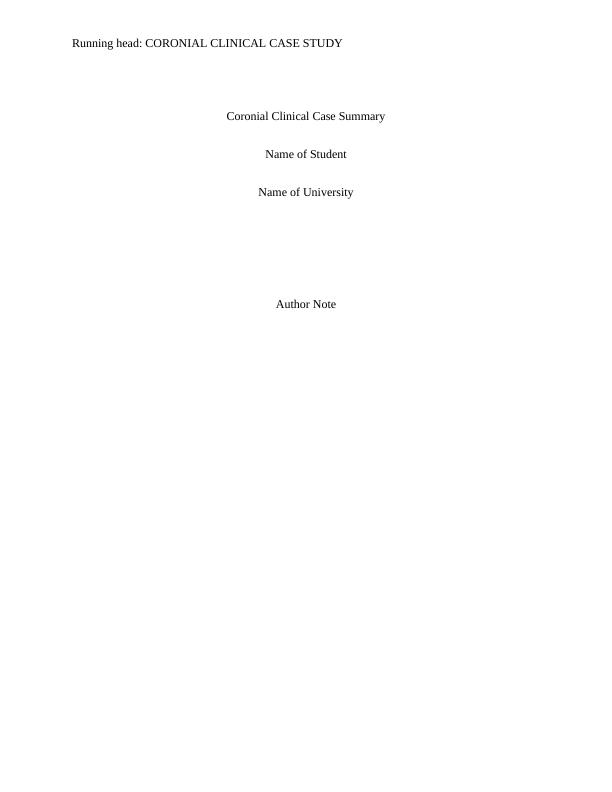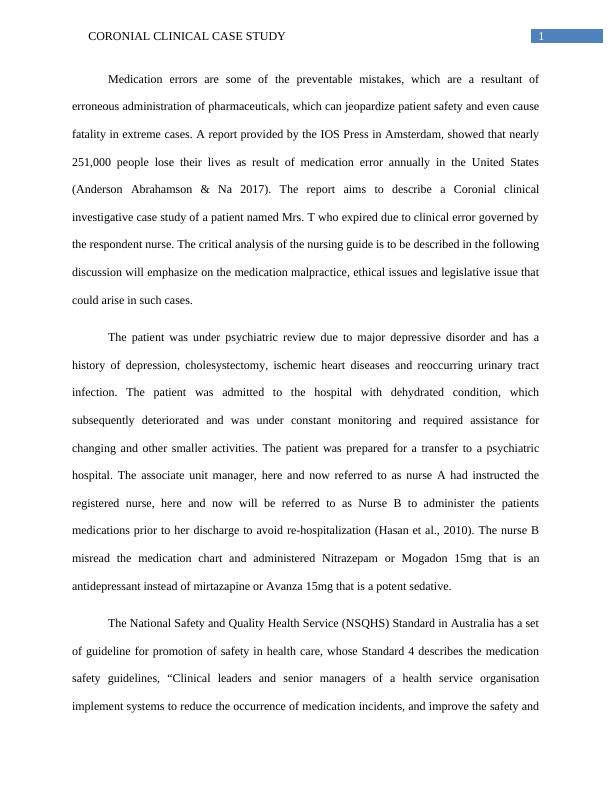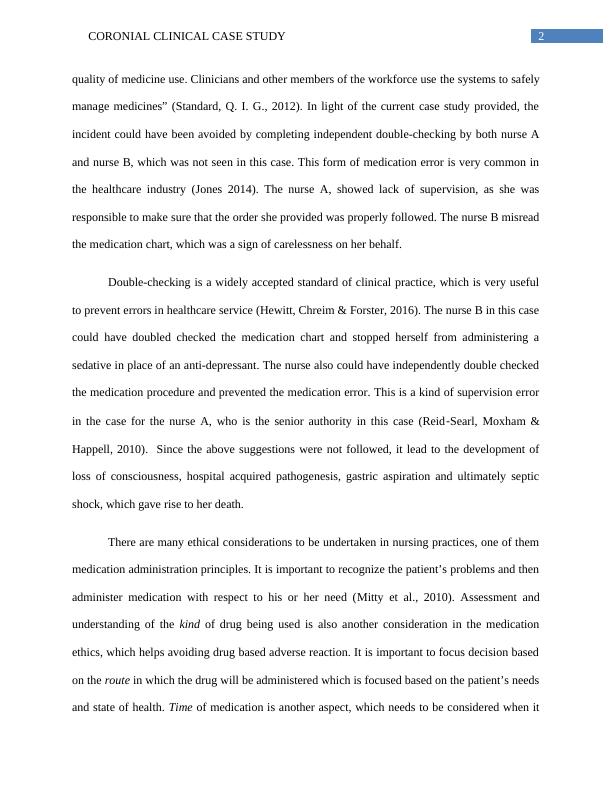Coronial Clinical Case Study on Medication Error and Nursing Ethics
Coroner Inquest Clinical Case Summary: “What’s in a Name?” Mrs T was a 74 yr old married lady who resided with her husband. She had a past history that included depression, cholecystectomy, ischaemic heart disease and recurrent urosepsis. Mrs T had undergone an aortic valve replacement in September 2008 due to syncopal episodes however, since this surgery she had poor appetite/oral intake, experienced significant weight loss, reduced mobility and lethargy. She was admitted to hospital in March 2009, due to dehydration, and deteriorating condition which she required high care assistance for showering and dressing and increasingly, mobility. The family had also expressed concerns that a number of her problems related to depression, despite treatment with antidepressant medication. Because of these issues she was referred for psychiatric review. It was determined Mrs T was suffering from major depressive disorder and her antidepressants were changed from sertraline to mirtazapine (Avanza). She was to be transferred to the Psychogeriatric Unit as an involuntary patient for ongoing management of her major depression. A number of family were present at the meetings where Mrs T’s diagnosis and treatment options were discussed. Mrs T was commenced on
Added on 2023-06-13
About This Document
Coronial Clinical Case Study on Medication Error and Nursing Ethics
Coroner Inquest Clinical Case Summary: “What’s in a Name?” Mrs T was a 74 yr old married lady who resided with her husband. She had a past history that included depression, cholecystectomy, ischaemic heart disease and recurrent urosepsis. Mrs T had undergone an aortic valve replacement in September 2008 due to syncopal episodes however, since this surgery she had poor appetite/oral intake, experienced significant weight loss, reduced mobility and lethargy. She was admitted to hospital in March 2009, due to dehydration, and deteriorating condition which she required high care assistance for showering and dressing and increasingly, mobility. The family had also expressed concerns that a number of her problems related to depression, despite treatment with antidepressant medication. Because of these issues she was referred for psychiatric review. It was determined Mrs T was suffering from major depressive disorder and her antidepressants were changed from sertraline to mirtazapine (Avanza). She was to be transferred to the Psychogeriatric Unit as an involuntary patient for ongoing management of her major depression. A number of family were present at the meetings where Mrs T’s diagnosis and treatment options were discussed. Mrs T was commenced on
Added on 2023-06-13
End of preview
Want to access all the pages? Upload your documents or become a member.



